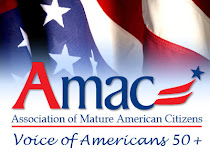Dear Readers:
You may find this article interesting. I have put the article's summary in this post, however, if you would like to read the complete article you can click HERE.
Does America Have the World’s Worst Food Quality and Safety?
By Ty Bollinger
Article Summary
- America
is a great country. But when it comes to the foods we eat every day,
the U.S. is arguably at the bottom of the pile in terms of food quality
and safety. The unfortunate truth is that our increasingly tainted food supply
is taking a major toll on public health.
- We face
constant exposure to unlabeled genetically-modified organisms (GMOs),
pesticide and herbicide residues, and perhaps the biggest threat of all
that you’ve probably never even heard of − mycotoxins.
- Mycotoxins
form from yeast and fungi that develop on foods grown in microbe-deficient
soils, which are more the norm than the exception these days. Mycotoxins
can lead to nervous system damage, hormone imbalances, and
cancer. Processed, non-organic foods in general tend to be prone to
mycotoxin formation.
- Not only
is American food a mycotoxic nightmare, but it’s also a chemical
nightmare. This is because of all the additives, preservatives, and
colorful food dyes used in much of what you’ll find on grocery store
shelves today. There are a number of common food chemicals used
in the U.S. that are banned elsewhere due to their questionable
safety profile. These include:
- rBHG/rBST artificial growth
hormones added to milk
- Antibiotics in meat, poultry, and
fish
- Propylene glycol in food and
alcohol
- Arsenic in chicken
- Popular
food brands often use completely different ingredients in the United
Kingdom and elsewhere than they do here in the U.S. to make similar, but
vastly different, products.
- The
American regulatory system has been whittled away by special interests
that have convinced our legislators that all these toxic food chemicals
are safe. Europe tends to take a much more precautionary approach with
food additives, approving only those shown to be safe. The U.S. takes a
more reactionary approach − unless you can prove a chemical is unsafe,
then it’s fair game.
- To avoid
genetically-modified foods, looking for a certified organic label is
your safest bet, as the National Organic Program prohibits the use of GMOs
in any organic product. Source out local farmers and partner with
those who’ve made a commitment to using and growing only clean food
products. Or best of all, grow your own organic garden with non-GMO
seeds.

.png)




No comments:
Post a Comment